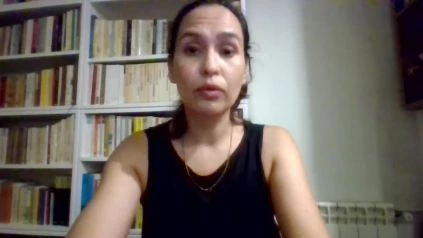Alena Gros of @VHIO answers commonly asked questions regarding the development of cell therapies for non-responders to current immunotherapies: can these cells kill the tumor?
_________
Research conducted by VHIO’s Alena Gros suggests a modern, less intrusive approach to detecting killer T lymphocytes in patients with low mutational burden gastrointestinal tumors that are refractory to authorized immune-based therapies.
Killer T cells found in blood that can hone on mutations expressed in cancer cells pave the way for an effective and customized avenue of therapy.
In today’s current era of precision medicine against cancer, we are increasingly witnessing how research is successfully potentiating and personalizing immunotherapy to more effectively unleash the power of the immune system in a greater number of patients to attack disease. Despite such progress, much work still needs to be done to better predict those patients who would be most likely benefit from them, extend their promise to more patients as well as tumor types – either as monotherapy, or, most likely in combination. “As importantly, we must pursue new therapeutic directions for those patients who are refractory to these novel treatments,â€Â said Alena Gros, Principal Investigator of VHIO’s Tumor Immunology & Immunotherapy Group, and lead and senior author of a study published open access this week in The Journal of Clinical Investigation*.
This study, performed in partnership with Steven A. Rosenberg at the National Cancer Institute (NCI-NIH, Bethesda, USA), an internationally renowned trailblazer of immunotherapy for cancer, along with other investigators at the Robert W. Franz Cancer Center (Portland, USA) and the Karolinska Institute (Stockholm, Sweden), is an important step forward in the search for alternative treatment applications.
Specifically, those patients with high mutational burden gastrointestinal tumors, so-called’ hot’ tumors, are a potential immunotherapy problem. In a limited number of patients with cold tumors, novel cell therapies focused on administering killer T cells that can identify neoantigens have shown promising antitumor activity.

